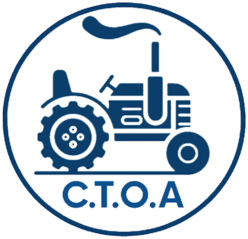Forum Replies Created
-
AuthorPosts
-
Why would you think that Tommy would post something like that, Bob?
Roger – a “keyway” is a longitudinal slot cut in a shaft for the purpose of retaining a piece of key stock to effect a positive coupling between the shaft an a pulley or wheel. Keyways are cut into the shaft with a milling machine and are not a replaceable item – they are either there or they're not. Replacing a keyway would be the same as replacing a hole. You can't buy a keyway, you can only have one machined. Your use of that term has us all confused. Can you clarify what you mean by the term?
Sure – contact Tommy at Affordable Tractor Sales in Texas. He has the parts you need, I'm sure.
That's the most common cause, but anything that deadheads the pump will blow the seal or split the case. Could be a stuck relief valve in the loader control or jamming the TPH lift arms under lift pressure, even. But a faulty quick-connect hose coupling is the cause about 9 out of 10 times. If you have the Chinese QC's, I suggest replacing them with better ones from one of the brand name manufacturers of couplings. Tommy can send them to you, even down under.
These tractors will piss out some hydraulic fluid when going up hills when the reservoir is full. Inherent in the design. You can modify the fill plug to hook up a longer breather tube to go up the ROPS arm a ways and beat the problem, several guys have done that.
Nope, you don't want to replace that flow control valve with a plug. It is necessary that it be adjustable to control the fall rate of different weights of implements. There is a small Allen-head set screw on the side that will lock it in place. Might have to scrape some paint to find it. Set it correctly for the weight of your implement and then lock the set screw. If you just use a plug, it will be wide open all the time and your implements may come crashing down and be damaged. Bad idea generally, and really bad with ground-engaging implements that might then damage the lift mechanism itself.
Also, the wiring to the glow plugs is marginal on these tractors. Better to install a relay and a heavier primary wire to the plugs. Saves the switch contacts and gives the glow plugs full voltage. I'd recommend nothing smaller than 10 gauge for the glow plugs – 8 gauge would be better.
Galvanizing temps shouldn't be hot enough to cause hydrogen migration into the grain boundaries of the steel, I wouldn't think. But I'm NOT a metallurgist.
I wouldn't worry about answering a post that is almost a year old, even if I didn't know that he already had the answer.

So, Mr(s) Avenue, did you join up here just to chide us? Surely you have better things to do with your time.
Yes, you can get the bolts hot-dipped, but you'll need to purchase ready-made HDG nuts for them – they have to be slightly oversize to accommodate the thickness of the hot dip galvanizing on the bolt threads. Try to put a regular nut on an HDG bolt and you'll quickly see what I'm talking about. You can guess how I learned this, I'm sure.

If'n ya wants corrosion resistance, just use hot-dipped galvanized fasteners. Much thicker coating and much more resistant to rusting.
If you'd stop all the senseless killing, maybe Ruth would come back?


-
AuthorPosts
